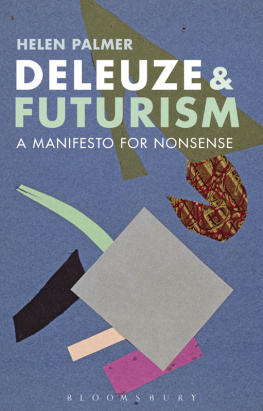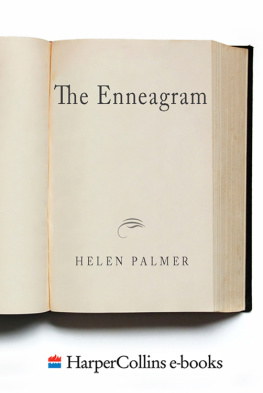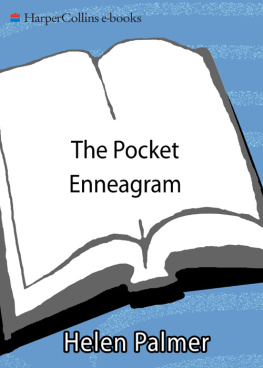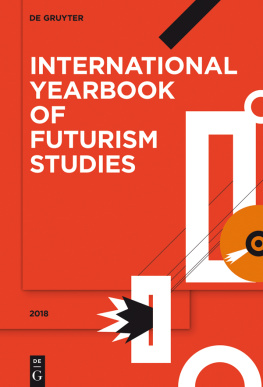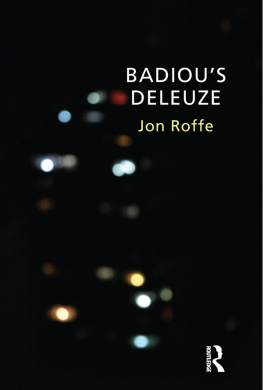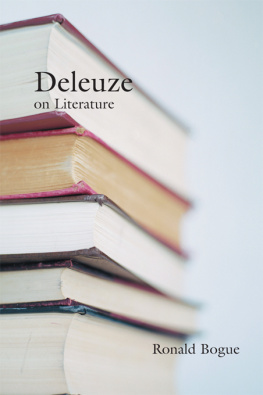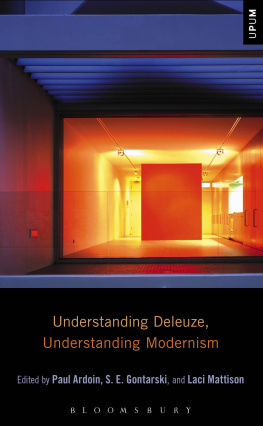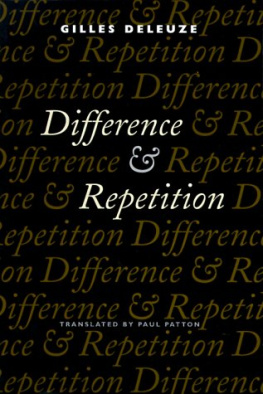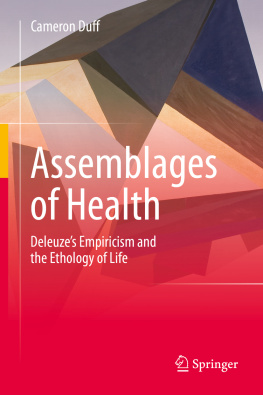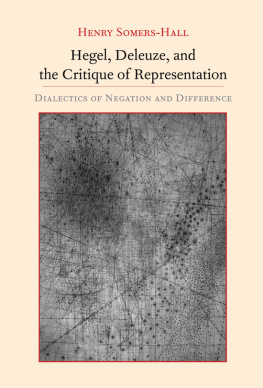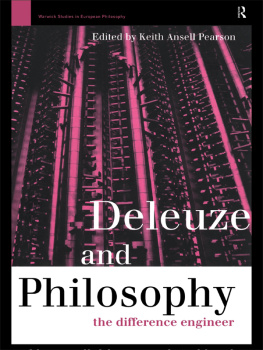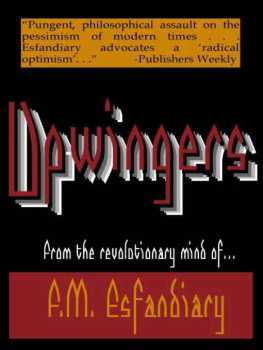Deleuze and Futurism
ALSO AVAILABLE FROM BLOOMSBURY
Cinema After Deleuze, Richard Rushton
Between Deleuze and Derrida, John Protevi and Paul Patton
Deleuze and Art, Anne Sauvagnargues, translated by Samantha Bankston
Deleuze and Cinema, Felicity Colman
Deleuze and Film, Teresa Rizzo
Deleuze and Guattari, Fadi Abou-Rihan
Music After Deleuze, Edward Campbell
Philosophy After Deleuze, Joe Hughes
Theology After Deleuze, Kristien Justaert
Deleuze and Guattari, Politics and Education, Matthew Carlin and Jason Wallin
Deleuze and Futurism
A Manifesto for Nonsense
HELEN PALMER

Bloomsbury Academic
An imprint of Bloomsbury Publishing Plc
50 Bedford Square | 1385 Broadway |
London | New York |
WC1B 3DP | NY 10018 |
UK | USA |
www.bloomsbury.com
Bloomsbury is a registered trade mark of Bloomsbury Publishing Plc
First published 2014
Helen Palmer, 2014
Helen Palmer has asserted her right under the Copyright, Designs and Patents Act, 1988, to be identified as Author of this work.
All rights reserved. No part of this publication may be reproduced or transmitted in any form or by any means, electronic or mechanical, including photocopying, recording, or any information storage or retrieval system, without prior permission in writing from the publishers.
No responsibility for loss caused to any individual or organization acting on or refraining from action as a result of the material in this publication can be accepted by Bloomsbury Academic or the author.
British Library Cataloguing-in-Publication Data
A catalogue record for this book is available from the British Library.
ISBN: ePub: 978-1-4725-2793-6
Library of Congress Cataloging-in-Publication Data
A catalog record for this book is available from the Library of Congress.
Typeset by Fakenham Prepress Solutions, Fakenham, Norfolk NR21 8NN
CONTENTS
I would like to thank Andreas Kramer and Alberto Toscano for helping me to negotiate multiple simultaneous pathways throughout this project. Thanks to Alberto for consistently challenging and detailed feedback on Deleuze, and thanks to Andreas for introducing me to Russian futurism back in 2007, and for providing motivation, encouragement and friendship ever since. Thanks to my Goldsmiths friends for Monday Club drinks and Twiglets: particularly Jessica Rapson for her friendship and her proofreading eagle-eyes; Eva Aldea for dog walks, talks and stacks of Deleuze books on loan; and my sisters-of-sorts, Vikki Chalklin and Jo Lloyd, for three years of PhD-fuelled hysterical laughter at Malpas Road. Special thanks go to Mum, Dad and Neil, who have encouraged, motivated, counselled and supported in a huge number of ways. I could not have done it without you.
I dedicate this book to Beth, for your inspiration, pragmatism, energy, alliterative flair and eternal bestowal of homebaked treats: thank you for keeping hold of me, even when I made no sense.
A manifesto for nonsense
In the 1960s, Gilles Deleuze presented a case for nonsense as the ultimate being of language. The groundwork is palpable in . Decades earlier, the Italian and Russian futurists begin an international and transdisciplinary movement presenting a case for the elimination of linguistic sense as we know it. The movement in both cases consists of the liberation of language from the strictures of preconceived meaning. Deleuzes philosophical extraction and affirmation of difference is in a certain sense analogous to the linguistic experiments of the early European avant-garde. This is again demonstrated by a linguistic model, which is why the futurist manifestos chosen as models for analysis in this book are the principal technical manifestos of Russian and Italian futurism, the ones that outline the metamorphoses to which language should be subjected: F. T. Marinettis Technical Manifesto of Futurist Literature (1912) and the Russian futurists collectively written and untitled literary manifesto in the book A Trap for Judges 2 (1913).
What leads Deleuze to affirm nonsense in this way, and how can one specific movement of the avant-garde help us to understand it? There are several ways in which we could characterize the answer to this. It has its base within language and linguistic theory, and a perception of language as matter. This affirmation of linguistic materiality consists of a shift in focus from the semantic content of the word to its material properties: a words sound and shape are the most obvious and common examples. The word shift is important. Deleuze and the futurists (both Italian and Russian) share a desire to liberate, radicalize and reconfigure language. The nature of this manipulation is at once both radically destructive and radically creative; it is based on a critique of reason and an ensuing celebration of language for its own sake. The metamorphoses to which Deleuze and the futurists aim to subject language to reach a point of nonsense are by no means identical, but their linguistic drives tend towards a common dynamic element. This element is outlined below, but this book will argue that it is a concept in the form of a neologism: we might call it a conceptual neologism. The conflation of linguistic and philosophical practices, or the use of linguistic concepts as models to express philosophical ones, is a process we can view in Deleuzes thought. Just as the creation of neologisms is fundamental to a futurist poetics, the creation of conceptual neologisms is fundamental to Deleuzes thought.
The dynamic element
The aim of this book is to identify the dynamic element that constitutes or drives a futurist poetics and examine it in its various guises, both in futurist writing and in the writing of Deleuze. The first two chapters, Poetics of futurism and Poetics of Deleuze, set the stage for the aspects of language, space and time under investigation. These chapters introduce some important concepts for the book as a whole. The concept of nonsense and the analogous function of the neologism occurs in Deleuzes discussions as well as futurist manifestos; the element of creativity and disregard for linguistic convention is a trope which can be viewed not only at a lexical but also a conceptual level. This leads us to the idea of the conceptual neologism, which is the ultimate goal of futurist poetics. The first two chapters also introduce the type of thinking which this book argues is present in the poetics of Deleuze and of futurism: an alternative type of reasoning based on a critique of Saussurian arbitrariness, which in this book is called Cratylic reasoning. This involves the motivatedness of links between objects or terms, both linguistic and conceptual, and is fundamental to the link this book draws between Deleuzes linguistic theories and futurist aims. These chapters also introduce the concept of the shift, another way of describing the dynamic element that can be seen in both futurism and Deleuze. The shift is a reconfiguration, a radicalization but also a formalization, which is the peculiar movement of these aspects of avant-garde and Deleuzian thought. Examples of the shift are presented in the following chapters, which demonstrate its various effects on linguistic spatiality and temporality.
The next four chapters examine the dynamic element from various angles, through the dual perspectives of Deleuze and futurism. , The see-sawing frontier: Linguistic spatiotemporalities. This chapter examines the shifts occurring in linguistic conceptions of space and time, through the philosophical developments of Bergson and the creative explorations of Khlebnikov and Marinetti, and Deleuzes own temporal schemas. The book concludes by arguing that within the futurist poetics outlined, temporality and language are linked through geometrical models, the most important being the ambiguous frontier line of futurist advancement articulated by Deleuze.
Next page
